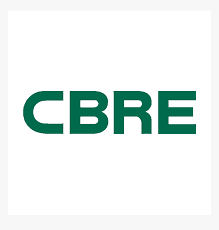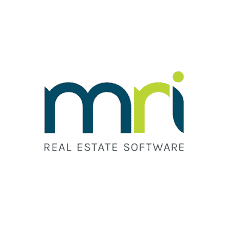Introduction
Employees in the skills-short Real Estate space are increasingly discerning who they choose to work with. We’re living in the age of the Great Resignation, where turnover is higher than ever.
Attracting and retaining great talent now requires a new, updated strategy.
There is a new demand for Real Estate recruiters to “sell” your business to potential candidates, focusing on the unique benefits and culture you offer. This means creating an Employee Value Proposition, or “EVP”, with a lasting impact.
Your EVP combines everything from the remuneration and benefits you can provide to the empathetic and engaging work environment you offer. The more compelling the EVP, the easier it will be to build your talent pipeline.
This report will look at what it means to create an outstanding Employer Value Proposition in an age where Real Estate talent priorities are changing.
Let’s dive in.
An Employer Value Proposition or “EVP” is a subsection of employer branding related to how companies attract skilled professionals.
According to experts, it’s the “set of associations and offerings” business leaders can provide in exchange for their employees’ unique talents.
In the past, many Real Estate businesses assumed the key to a successful EVP was simply offering their team the best salary and benefits. However, today’s teams are looking for more than just financial value in their careers.
According to a recent Gallup poll, while 82% of business leaders thought their staff left their positions in search of better pay, only 12% of employees confirmed this to be true.
The shifting focus of the EVP has become increasingly significant in recent years, as the pandemic and changing economic environment have led to employees changing their priorities. Team members have had an opportunity to rethink their relationship with the workplace.
During an Real Estate workplace revolution, we’re seeing a new focus on concepts previously disregarded in Employer Value Propositions. Today’s teams want more social responsibility, flexibility, and personal and career growth opportunities.
To create a powerful EVP, Real Estate companies need to redefine the priorities of their teams.
How Employee Value Propositions Have Changed
The concept of what makes a great “EVP” has been evolving for years. This transformation accelerated as employee attitudes towards work began to shift at the start of this decade. The employee and employer relationship has changed, and talent is in control.
In the Real Estate industry, your ideal candidates have many options regarding where and how they choose to work. Remote and hybrid working has opened the door to employment opportunities previously unavailable to modern teams. Staff are no longer restricted on where to work based on geography alone.
As a result, the common principles underlying old-fashioned EVP strategies have grown outdated According to Gartner, there are various factors demonstrating the inefficiency of current Employer Value
Propositions, including:
- Engagement: Employee engagement, responsible for driving performance and retention outcomes, has remained consistently flat among all industries since 2016.
- Attraction: Only 29% of functional leaders believe they have the talent to meet current performance requirements. Attracting talent is becoming more difficult.
- Retention: A tiny 23% of HR leaders believed their employees would continue working with them after the pandemic was officially over.
- EVP satisfaction: Only around 31% of HR managers say employees are satisfied with EVP offerings, and 65% of candidates say they have stopped pursuing a job because of an unattractive EVP.
Business leaders are discovering the need to update Employer Value Propositions with a new focus on a more “human” experience. Increasingly, companies in the Real Estate landscape need to show they can offer their staff a more effective life experience.
This means forming deeper connections between employees and employers, supporting more radical forms of workplace flexibility, and prioritising holistic wellbeing and empathy. Employees want to feel supported, respected, and invested in a shared purpose.
Why Are Employee Value Propositions Important?
Despite the rapidly changing Real Estate employment landscape, countless business leaders still fail to understand the benefits of an EVP.
An Employer Value Proposition is one of the most important ways for any brand to stand out from other competing companies in an evolving landscape. As people continue to make tough decisions about how and where they want to work, and priorities evolve, it’s now more critical than ever to get your EVP right.
Let’s look at some of the main benefits of a strong EVP.
- Attracting top talent
There’s no denying the Real Estate recruitment landscape is growing more complex. Prospective employees are becoming better at navigating the industry to find their desired roles. The explosion of remote work opportunities also means candidates can find higher-paying positions with the freedom to work from home.
Your EVP acts as a key driver of talent acquisition, separating your business from other competing brands and communicating why teams should want to work for you.
- Retaining employees
Finding the right talent is only the first step. You also need to ensure you keep your most valuable staff members around. Retaining highperforming employees is difficult in the age of the great resignation, and every person who leaves your business causes internal disruption.
According to Gartner, having a strong EVP is enough to reduce your team turnover by 69%. Not only do you hold onto your people for longer, but you reduce the need to search for, train, and onboard your replacement staff when people leave.
- Optimise recruiting
A strong EVP is a valuable tool in advertising your company to prospective candidates. The more refined your Employer Value Proposition is, the more likely you are to attract the right Real Estate employees capable of melding well with your existing corporate culture.
As a specialist Real Estate recruiter, we already have a network of candidates we can present to you. However, if your brand doesn’t stand out in today’s market, potential hot new hires will say no to you and yes to someone else.
- Improving corporate culture
Building a strong EVP is also a process which involves auditing and enhancing your existing business environment. You can redefine your business values and improve your chances of keeping employees engaged and motivated at work. A good EVP can even improve new employee commitment levels by 30%.
Assessing everything from your compensation strategy to your workplace environment will improve the employee experience, boost internal productivity, and strengthen team performance.
What are the Key Elements of an Real Estate EVP?
As mentioned above, the nature of the Employer Value Proposition is changing rapidly in the current economy. However, there are still several vital elements you need to consider when defining how you will attract and retain your candidates.
Some of the most common factors to look at include:
The compensation aspect of your EVP is one of the first things you’ll need to consider to attract potential employees. While 67% of workers say an organisation’s mission is more important than how much it can pay, every Real Estate specialist still wants to earn what they’re worth.
Working with a specialist recruitment company can help you to determine the best possible compensation package to offer your candidates. You’ll need to provide a pay scale similar to the overall market average, as well as think about other remuneration factors, like:
- How to handle raises and promotions and corresponding pay scales
- Whether to offer share option schemes
- When bonuses will be providedIf your compensation package is lower than the average Real Estate firm or company in the market, you’ll need to consider enhancing your EVP in other ways. It may be possible to attract new candidates based on the flexible working hours or distinctive culture you can provide.
Benefits
For some companies, the “benefits” section of the EVP will go hand-inhand with compensation. However, it can also be an area worth exploring on its own. The benefits you provide can sometimes assist in outweighing a slightly lower Real Estate base salary.
For instance, an employee might be willing to accept a slightly less competitive pay package if you can also provide additional benefits and excellent levels of paid leave.
Some studies also show around 27% of workers would accept a pay reduction of between 15-20% in exchange for the option to work remotely.
Development opportunities
Approximately 58% of employees say professional and personal development contribute to job satisfaction and increase their chances of accepting a role. Moreover, employees with access to professional development opportunities are up to 15% more engaged in their workplace.
Employees who join your business want to see a future with the brand. This means offering everything from technical training opportunities to personal development. You could give your team members the chance to take courses at work, access mentoring and career guidance, and even take leadership training.
It’s also important to ensure there’s room for lateral movement in your organisation. Today’s team members want to be able to work towards promotions and new responsibilities.
Work environment
The “work environment” in the Real Estate EVP conversation is becoming one of the most important parts of making your business stand out.
Increasingly, your employees are looking for an environment which feels supportive, inclusive, and diverse.
Work environments must be healthy and engaging, focusing on wellbeing and empathy. This means leaders must invest more time in ensuring their employees are comfortable and engaged. Currently, only around 54% of employees say they believe their company is a good place to work.
There are various factors to consider when approaching your EVP’s “work environment” aspect. For instance, can your team access flexible working hours and remote working opportunities to boost work/life balance in the modern world? Do you want to offer a four-day work week to allow people more time to recover on the weekend?
Other points to consider include:
- Team building and collaborative experiences
- Employee wellbeing initiatives
- Diversity Equity and Inclusion (to reduce bias)
- Recognition and rewards for team members
- Employee purpose (is the work meaningful?)
Job Security
Though several Real Estate brands still overlook the job security element of a role. This aspect is becoming increasingly important for new hires with inflation increasing and a predicted economic downturn. Since the pandemic, team members have grown more concerned about their roles’ longevity and how long they can expect to stay with a business.
In a survey by Monster.com , around 45% of employees said job security and pay were equally important when deciding where to work.
Your team members want to know you’re just as invested in them and their growth as in your business. Consistent and stable jobs are a musthave in today’s economy. One way to improve the sense of job security you offer your team members is to plan a path for development and promotion with each new staff member during the initial onboarding process.
Company culture
For years, the concept of company culture has been gaining more ground. However, many business leaders still fail to understand “ culture “. The definition of company culture is also evolving as we shift into a new landscape of remote and hybrid workers.
To build a strong company culture, companies must consider the values they prioritise when advertising new roles and how they can strengthen team relationships. The best, most attractive Real Estate workplaces are where team members can feel like part of a family.
Companies must ensure they’re focusing heavily on developing trust and equality within the workplace. Other points to consider when addressing company culture include:
- Team communication and support options
- Positive relationships among all team members across hierarchies
- Aligning employees with company goals
- Giving team members a sense of purpose and meaning
- Prioritising shared values, or a shared company visionHow to Design Your Employee Value Proposition According to Gartner, a leader in market research in this people management field, companies can reduce their compensation premiums by 50% and reach 50% deeper into the current labour market when candidates view their EVP as attractive. An EVP strengthens your position in the hiring landscape and improves your chances of retaining talent.
The right strategy will make it easier to stand out in a competitive marketplace. Currently, around 57% of hiring managers say differentiating their company from the competition is one of their biggest challenges.
The question is, how do you start building an EVP with a clear impact on your employees?
Step 1: Define Your Employee Personas
Now, more than ever, we’re seeing the rise of new types of employees in the Real Estate landscape. Companies need to recognise how diverse their target audience is to compete with an excellent EVP. Some employees will prioritise the opportunity to work from home or leverage a 4-day work week; Others will be more motivated by development opportunities.
In certain sectors, companies are even beginning to present their EVP in different ways, depending on the kind of talent they’re trying to attract.
Although you might not be able to change your entire EVP for every employee persona, you can adjust the focus of your job descriptions and advertisements to suit the benefits specific teams are looking for. You might want to concentrate on development opportunities for entry-level Real Estate talent and deliver more benefits for high-level hires.
The more you know about your ideal employee, the more you can cater your EVP to their interests. Think about the following factors:
- What kind of work/life balance is your employee looking for?
- Does your target audience belong to a specific generation – how does this affect their priorities or demands?
- What sort of work is your employee looking for?
- What values will they prioritise when deciding whether to work with you?
Step 2: Audit your Existing EVP
Once you have a clear view of your target candidate, it’s time to assess what your company is currently offering. Make a checklist of all the components mentioned in the above section, from remuneration to workplace environment.
For instance, you might offer a fantastic learning and development strategy but struggle to redefine the workplace after the pandemic. Don’t assume a great remuneration package will make the rest of the factors meaningless. As mentioned above, today’s team members are becoming increasingly less interested in pay as an essential factor when choosing where to work.
Auditing your EVP should give you a good insight into where you need to start implementing new plans and policies to make your workplace more attractive.
Step 3: Interview existing and past employees
Sometimes, the best way to understand what you’re doing right and what you’re doing wrong with your Employee Value Proposition is to speak to your Real Estate team. Your team members can offer insights into what encouraged them to join your business in the first place. They’ll also give you an overview of what you’re doing correctly to retain your talent.
You could also send employee surveys to previous team members, asking them why they left your company. Remember an exit interview is a good way to collect meaningful insights before someone leaves your brand for good.
Outside of your past and current employees, don’t overlook the value of talking to the candidates you interview to join your team about their perspectives. Ask them why they want to work for your business in the interview and what appeals to them about the job description and role.
If you offer someone a job and they turn you down, find out what convinced them to look in another direction. Your specialist recruitment company can even collect some useful insights from candidates on your behalf.
Step 4: Define the Key Components of Your EVP
With your research in hand, you’ll be able to start defining the key components of the future Real Estate EVP you want to display to your potential candidates. This is the perfect time to start working on your differentiation strategy with a specialist recruitment company.
A recruitment company will be able to advise you on how other brands similar to yours are attracting talent. They can also help you better understand what your target audience is looking for from an employer.
Using your research, you’ll need to answer the following questions:
- What salary range and employment benefits are most attractive to my candidates?
- What kind of career and personal growth opportunities will my candidates look for?
- What sort of workplace environment appeals most to my Real Estate talent?
- What kind of company culture and values are prioritised by these candidates?
- How can I ensure my employees feel secure in their new role?You may find different answers to these questions based on employee personas. For instance, the EVP for recent graduates might focus on career growth and employee perks. The EVP for executive-level professionals might focus more on work-life balance, plenty of paid vacation time, and career stability.
Step 5: Write your Employee Value Proposition Statement
An employee value proposition statement clearly explains exactly what kind of experience you can deliver and how you differentiate your business from the competition. Your statement might outline your exceptional career development opportunities or competitive Real Estate salaries. You can also highlight key factors of your company culture.
A good statement is clear, unique, and aligned with your candidates’ expectations and the wider business. If you’re struggling with this process, consider turning to your recruitment company for extra assistance. A specialist recruitment brand can help you to answer the question of “why” your candidates should choose you.
Remember, employee value proposition statements need to be factual. Don’t make claims you can’t back up with actions and evidence. You can’t simply say you offer the best, most modern office environment in the Real Estate space.
Step 6: Promote your EVP
Once you have your EVP statement, you can think about how you will promote your improved employee offer. Once again, your Cherry Pick People specialist will be able to give you advice on how to make the right impact on your website, social media channels, and job descriptions.
The clearer your EVP statement is, the easier it will be for the recruitment company you work with to highlight your key values to candidates. It’s also worth making sure any internal brand ambassadors and employees willing to help grow your brand can assist with promotion too.
Brand ambassadors can discuss key factors of your employee value proposition when writing reviews on job forums or posting on social media.
Step 7: Review Your Results
Once you’ve formulated the perfect Employer Value Proposition strategy, implemented it across your organisation, and started promoting, it’s time to measure. Measuring and tracking how people respond to your EVP will give you an insight into whether you need to change anything to make your Real Estate roles more attractive.
While there’s no one-size-fits-all strategy for measuring your results, it’s helpful to look at metrics commonly affected by EVP, such as:
- Time-to-hire
- Quality of hire
- Job offer acceptance rate
- Retention or employee turnover
- Employee referral numbers
- Employee engagement rate
- New hire retention rateReviewing and tracking your results from a strong EVP strategy isn’t just something you should do once. As Real Estate hiring trends continue to change and candidate priorities evolve, it’s important to keep coming back to your strategy. Review your Employee Value Proposition from time to time, and make sure it’s still having the right impact.
Build the Right EVP for Real Estate talent
Creating a strong Employee Value Proposition is quickly becoming one of the most important things any business can do. In a skills-short marketplace, it’s harder than ever to attract the talent you need to keep your company thriving. With an EVP, you can augment and enhance your talent pipeline.
The easiest way to build, promote, and enhance an Employee Value Proposition, is with the assistance of the right specialist recruitment company. With a deep knowledge of your industry, your Real Estate recruitment team will give you a behind-thescenes insight into your ideal candidates and their needs.
They’ll also be able to help you separate your business from the competition.
When the time comes to attract new talent, your recruitment team will also be able to highlight the aspects of your EVP considered most important to new hires.
contact our team today to learn more about how we can help you leverage your Employee Value Proposition and win the war for talent.

















